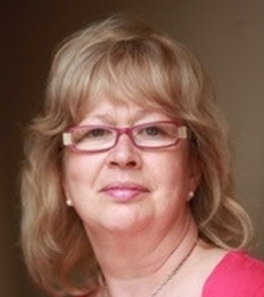Safeguarding: Interview with Di Smith
Di Smith talks about her roles as Independent Chair of the Diocesan Safeguarding Advisory Committee, and the Past Cases Review 2 Reference Group.

What is the Independent Chair’s role?
The role of the Independent Chair is important in ensuring that the safeguarding provision within the Diocese is secure and subject to robust and independent scrutiny. As Independent Chair I am a critical friend, supporting and encouraging as appropriate, but also providing challenge when necessary.
Tell us about your safeguarding experience.
I have worked within Education and Children’s Services for over forty years. In the early part of my career I taught in schools and was Deputy Head of a special school and Headteacher of an inner city primary. Throughout my career I have worked to improve the life chances of vulnerable children and young people. I have held the statutory role of Director of Children’s Services in four local authorities with responsibility for ensuring the safety and well-being of children and young people.
For the past 10 years I have worked as consultant in different parts of England supporting local areas to improve safeguarding and services to children and young people. In recent years I have taken on a number of chairing roles including Independent Chair of a Safeguarding Children Board and Independent Chair of a Children’s Services Improvement Board. I am also the Safeguarding Trustee for the Children’s Society.
What does the Diocesan Safeguarding Advisory Committee (DSAC) do?
The purpose of the DSAC is to provide advice, strategic support and guidance to the Diocesan Bishop and his staff in respect of safeguarding of children and vulnerable adults.
It also provides advice to the Bishop and Diocesan staff about action to be taken in difficult cases. This is likely to include provisions for setting up a Core Group when needed. It is also responsible for reviewing cases retrospectively in order to identify any lessons that need to be learned.
Why is the Past Cases Review 2 (PCR2) so important?
PCR2 is an important part of the Church’s overall commitment to improving the way we respond to allegations and concerns. It is an essential step in making the Church a safer place for all and demonstrates a commitment to responding well to all survivors of abuse.
The overall purpose of PCR2 is to identify both good practice and institutional failings in relation to how allegations of abuse have been handled, and to provide recommendations to the Church of England that will lead to improvements in its response to allegations of abuse and in its overall safeguarding working practices.
What is the most rewarding thing about the work you do for the Diocese?
The most rewarding thing is working with a knowledgeable and experienced team who are committed to ensuring that the Diocese in Europe continues to develop and improve its safeguarding arrangements. We are all working together with the support of chaplaincies across the Diocese to make the Church a safer place for all.
What skills and experience do I need to be an external member on the DSAC/PCR2 Reference Group?
External members must have extensive, current or recent child protection or adult safeguarding experience at a senior level in a statutory, voluntary or private organisation. We would be particularly interested in hearing from anyone who has experience of safeguarding in an international context, people who have experience working with survivors of abuse, and anyone with direct experience of working with refugees and asylum seekers.
What can the Diocese offer me in this role?
The Diocese will offer you a period of induction and support together with access to training and development.
Why does the Diocese need external members?
External members bring senior level professional experience and expertise in safeguarding. They also bring an independent perspective which enhances the level of scrutiny and transparency provided by DSAC and the PCR2 Reference Group. They provide vital challenge and support.
Further Information
The recruitment specs as PDF versions (DSAC and PCR2 Reference Group).
You can access here current Diocesan Safeguarding Policy and Guidance.


